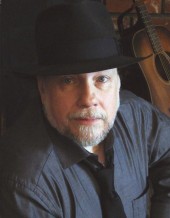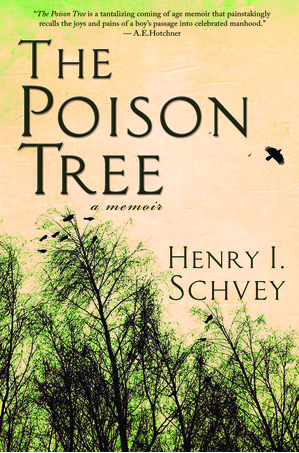Share the post "About Hild, A New Novel, A New World"
by Mark W. Tiedemann (first published in The Proximal Eye November 13, 2013)

It is completely fitting that science fiction writers should write historical fiction. Both forms deal with the same background—alien worlds.
Because we live in a story-saturated era where access to the ages is easily had with a visit to the library, the local bookstore, the internet, movies, it is easy to assume we know—that we understand—the past, with the same cordial familiarity we experience our own personal history. That people lived differently “back then” seems more a matter of fashion and technology, not a question of thought process or philosophy or world view.* People lacked central heating and air conditioning, cars, television, telephones, indoor plumbing, antibiotics…but they lived essentially the same way.
Well, one could make a case that they did, but you have to ask the question “In what ways did they live the same way?” Therein lies the heart of good historical analysis and extrapolation.
Because while we can connect with people of the past in many very broad ways—they were human, they loved, they hated, they were greedy and generous, they were driven by passions, they dreamed—the specifics can school us in the range of the possible. What does it mean to be human?
Far more than we might imagine.
But that’s where the novelist comes in, the writer who takes the time to grapple with those myriad distinctions and give us a look into those differences that are still, regardless of how remote they seem from our personal understanding of “human,” part of who we are, at least potentially.
I mention science fiction at the beginning because at a certain level, if we’re dealing with something deeper than costume drama or plot-driven adventure fiction, the exercise of finding, comprehending, and actualizing on the page an entire period from the past—Republican Rome, Hellenic Greece, the Mesopotamia of the Sumerians, the Kingdom of Chin, or post Roman England—is much the same as building a world out of logic and broad-based knowledgeable extrapolation. In some instances, extrapolation is all-important because the fact is we simply do not know enough to more or less copy a record into a fictional setting. Instead, we have to take the tantalizing scraps of what remain of that world and supply the connective tissue by imagining what must, what probably, what could have been there. And in the process we discover a new world.
If done well, that newness becomes a mirror for us to perceive what we have overlooked in ourselves. (Which is what good fiction ought to do anyway, but in the well-constructed historical it is a special kind of revelation.)
Seventh Century England is rich with the unknown, the ambiguous, the seductively out-of-reach. It existed between one deceptively homogeneous era and another, between the Roman Empire and the emergence of the Holy Roman Empire. More, it held some of the last vestiges of the once vast Celtic Empire. It was a land where shadow-pasts vied for hegemony over the mythic substrate defining meaning for the warlords, petty kings, and mystics serving them. Pagan religions found themselves competing with this new Christianity, which had been around a while but was finally beginning to make significant headway among the competing kingdoms, looking for the leverage it needed to make itself an “official” religion with the authority to shove the others aside.
Into this came a woman who eventually mattered enough, given the overwhelming patriarchal structure of the day, to deserve a mention from the Venerable Bede (who saw women much as most men of his time did, necessary creatures in need of guidance and by dint of their sex lesser beings). In Book 4 of his Ecclesiastical History of the English People we’re told of St. Hilda, who was by any measure of the era (and even ours) astonishing. “Her prudence was so great…that even kings and princes asked and received her advice.”
A good novel starts with a good question and in this case it would be: Who was this woman and how did she get to this place?
A question to which Nicola Griffith impressively supplies an answer in her new novel, Hild, (Farrar, Strauss, Giroux).
Hild, later St. Hilda of Whitby, lived from 614 to 680. She was a second daughter of minor nobility whose father died, leaving the family at the mercy of rival kingdoms. Later she founded an abbey, where she remained the rest of her life, and was a teacher of prelates and princes.
Note that. Seventh Century, at a time and in a place where women were little more than property, Hild could not only read but commanded respect. That alone would make her fit subject for a big historical novel. Certainly she would serve as the basis for a cathartic life-lesson to modern audiences about the innate power of women and the need to find and act upon one’s own identity.
But Griffith avoids this in some ways too easy path to sympathy for her character and does what superb history should—provides context and shows her character in situ, living as she would have. Hild had her own problems to face and they are not ours. Through the course of 560 pages of well-chosen and seemingly hand-polished words, Hild is given to us as a person, fully realized, of her own time. This is a different world and these people did not see it as we do.
The success of a novel is in its ability to bring the reader entirely in and hold them, enmeshed, for the duration. Griffith’s past novels have demonstrated that she can achieve this in both science fiction (Ammonite, Slow River) and noir thriller (The Blue Place, Stay, Always). But in some ways those novels presented less of a challenge in their immersive requirements—they were closer to home, nearer to our own world, and allowed for reader assumptions to come into play. (This is deceptive, of course, and is more a question of laziness on the part of the reader than on any artistic shortcuts a writer might take.) Hildrepresents an order of magnitude greater risk on Griffith’s part, a kind of dance through a mine field of possible failures that could cause reader disconnect or, worse, a betrayal of her characters. It is a great pleasure to note that she made no such missteps, got all the way to other side, world intact, with a character very much herself.
This is what historical fiction ought to do. Take you and put you in a world that is quantitatively and qualitatively different and still engage your sympathies. As we follow Hild from birth, through her education (under the guidance of her mother, who is herself remarkable) and into a young adulthood in which she comes into possession of some authority, we find ourselves shifting out of our comfort zones with respect to the givens of the world.
Hild is the first book of a trilogy, which will cover Hild’s whole life. If the next two books are done with as much care, diligence, and grace as this, we are all in for a remarkable experience.
And out of the richly-wrought tapestry of difference, we really do find a connection across the centuries. Just not where one might ordinarily look for one.
______________________________________________________
*World view is itself a phrase fraught with change, for to have one requires we have some notion of The World, and that has changed constantly over time. What world? How big? Who is in it? Look at the changes in the past five centuries, which some historians identify as the modern era. We have gone from a flat earth at the center of a solar system which defined the limits of space to an uneven sphere orbiting an insignificant middle range star of a small galaxy that is one out of billions and billions of galaxies, with no evident limit to what comprises the universe.



